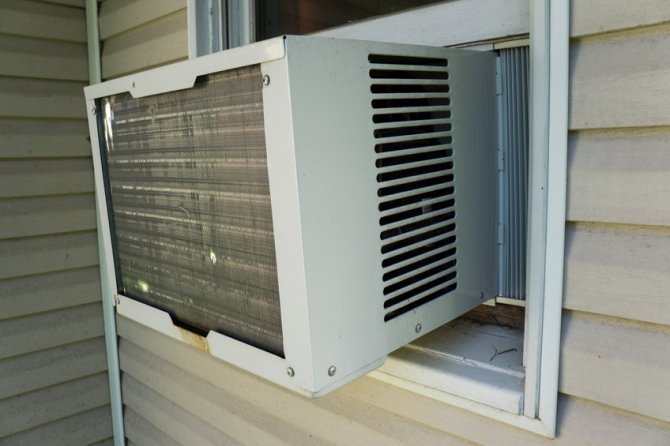Can Air Conditioners Cause Mold? Find Out How Ac Systems Can Promote Mold Growth
Yes, air conditioners can cause mold growth if not properly maintained. Moisture from condensation can accumulate on the coils and in the ducts, creating a damp environment where mold can thrive. Regular cleaning and maintenance of the air conditioner can prevent mold growth.
Did you know that your air conditioner could be responsible for the growth of mold in your home? It’s a concerning thought, especially when your primary goal is to maintain a healthy living environment. Mold growth can have adverse effects on indoor air quality and contribute to respiratory issues.
As a homeowner, renter, or someone who uses air conditioning systems, it’s essential to understand the potential risks associated with mold and take preventive measures to avoid its growth. In this blog article, we will delve into the topic of whether air conditioners can cause mold.
We will explore the factors that contribute to mold growth, the signs to look out for, and the steps you can take to prevent mold from infesting your home. Whether you’re familiar with air conditioning systems or have limited knowledge, this article aims to provide you with valuable insights and actionable tips. First, we will uncover the connection between air conditioners and mold formation, shedding light on how moisture, temperature, and improper maintenance can create an ideal breeding ground for mold.
Understanding these factors will help you identify potential risks within your own system. Next, we will discuss the adverse effects of mold on indoor air quality and your health. From respiratory issues to allergies, mold can have a significant impact on your well-being, making it crucial to address any potential growth as soon as possible.
Understanding the Connection Between Air Conditioners and Mold Formation
To comprehend whether air conditioners can cause mold, it’s crucial to understand the connection between these cooling systems and mold formation. While air conditioners themselves do not generate mold, they can create an environment that is conducive to mold growth.
The Role of Moisture
Moisture is a key factor in mold development, and air conditioners can contribute to increased humidity levels in your home. As air passes through the evaporator coil of your AC unit, it cools down, causing moisture to condense. This condensed water is usually drained away through a drip pan and drain line. However, if the drain line becomes clogged or the drip pan is not properly maintained, it can lead to water accumulation.
Excess moisture in your AC system or the surrounding area can create the perfect breeding ground for mold spores to settle and grow. Additionally, if your AC unit is oversized for the space it is cooling, it may cool the air too quickly, leading to inadequate dehumidification and creating a moist environment.
The Impact of Temperature
Mold thrives in environments with temperatures between 60 and 80 degrees Fahrenheit (15 to 27 degrees Celsius). Unfortunately, this temperature range is similar to the ideal temperature for air conditioning systems. While your AC unit is designed to maintain a comfortable indoor temperature, it can inadvertently create conditions that foster mold growth.
If your air conditioner is running constantly or set at a low temperature, it may not have sufficient time to remove excess moisture from the air. This can result in high humidity levels and a damp environment, providing the necessary conditions for mold to flourish.
The Importance of Proper Maintenance
Proper maintenance of your air conditioning system is crucial in preventing mold growth. Regular maintenance tasks include cleaning or replacing air filters, inspecting and cleaning the drip pan and drain line, and ensuring there are no leaks or excess moisture around the unit.
When neglected, these maintenance tasks can contribute to mold formation. Clogged air filters can restrict airflow, leading to moisture buildup, while a clogged drain line can cause water to accumulate and create a breeding ground for mold.
Preventive Measures to Avoid Mold in Air Conditioners
To minimize the risk of mold growth in your air conditioner, follow these preventive measures:
- Regularly clean or replace air filters to ensure optimal airflow and reduce the accumulation of dust and debris.
- Check the drip pan and drain line for clogs or leaks, and clean them as necessary.
- Maintain proper humidity levels in your home using a dehumidifier if necessary.
- Ensure proper ventilation in areas where moisture tends to accumulate, such as bathrooms and kitchens.
- Consider the size of your AC unit and ensure it is appropriately matched to the space it is cooling.
- Schedule regular professional maintenance for your air conditioning system to identify and address any potential issues.
The Adverse Effects of Mold on Indoor Air Quality and Health
Mold growth in your air conditioning system can have detrimental effects on both indoor air quality and your health. It’s essential to understand these effects and take prompt action to mitigate them.
Indoor Air Quality Concerns
Mold releases spores into the air, which can significantly impact indoor air quality. Breathing in these spores can trigger allergic reactions, respiratory issues, and worsen existing conditions such as asthma or allergies. The presence of mold can also cause unpleasant odors and contribute to a stuffy or musty indoor environment.
Respiratory Issues
Exposure to mold spores can lead to various respiratory issues, ranging from mild to severe. Symptoms may include coughing, wheezing, shortness of breath, throat irritation, nasal congestion, and sinusitis. Prolonged exposure to mold can exacerbate these symptoms and potentially lead to chronic respiratory conditions.
Allergic Reactions
Many individuals are allergic to mold, and exposure to mold spores can trigger allergic reactions. Symptoms may include sneezing, itching, watery eyes, skin rashes, and hives. Allergies to mold can range from mild to severe, significantly impacting an individual’s quality of life.
Potential Health Risks
In addition to respiratory issues and allergies, mold exposure has been linked to other health risks. Some studies suggest that prolonged exposure to mold may contribute to the development or worsening of certain respiratory conditions, such as asthma. It may also increase the risk of respiratory infections and other respiratory-related illnesses.
While air conditioners themselves do not cause mold, they can create an environment that promotes mold growth if not properly maintained. Understanding the connection between air conditioners and mold formation is crucial in preventing mold infestation in your home and safeguarding your health.
By ensuring proper moisture control, temperature regulation, and regular maintenance of your air conditioning system, you can minimize the risk of mold growth. Taking preventive measures and promptly addressing any signs of mold can help maintain a healthy living environment and preserve indoor air quality.
How to Fix Smelly AC in Your Car Like the Pro in 3 Minutes
Frequently Asked Questions (FAQ)
Can an air conditioner cause mold?
How does mold grow in an air conditioner?
What are the health risks of mold in an air conditioner?
How can I prevent mold growth in my air conditioner?
Should I have my air conditioner inspected for mold?
Final Words: Preventing Mold Growth in Your Air Conditioning System for Better Indoor Air Quality and Health
In conclusion, while air conditioners themselves do not cause mold, they can create an environment that promotes mold growth if not properly maintained. Excess moisture and inadequate dehumidification can result in high humidity levels and a damp environment, providing the necessary conditions for mold to flourish.
Additionally, the temperature range that air conditioners maintain for comfort is also ideal for mold growth. Proper maintenance of your air conditioning system is crucial in preventing mold formation.
Regularly cleaning or replacing air filters, inspecting and cleaning the drip pan and drain line, and ensuring there are no leaks or excess moisture around the unit are essential tasks. By neglecting these maintenance tasks, you may contribute to mold formation. To prevent mold growth in your air conditioner, it is recommended to follow preventive measures such as regularly cleaning or replacing air filters, checking the drip pan and drain line for clogs or leaks, maintaining proper humidity levels with a dehumidifier if necessary, ensuring proper ventilation in moisture-prone areas, considering the size of your AC unit, and scheduling regular professional maintenance.
Mold growth in your air conditioning system can have adverse effects on both indoor air quality and your health. Breathing in mold spores can trigger allergic reactions, respiratory issues, and worsen existing conditions such as asthma or allergies. Prolonged exposure to mold can lead to chronic respiratory conditions and other health risks.






